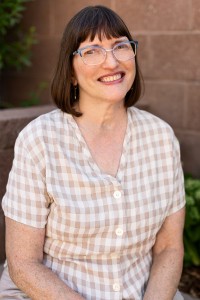
May 6, 2020
It is in times of crisis that our national motto – e pluribus unum; out of many, one – rings truer than ever. We are a collection of states – and cities, communities, and individuals – united under one democracy. We rise or fall as one. But the COVID-19 pandemic has revealed more starkly than ever a much less idealistic side of America: the chasm separating what John Edwards dubbed the “two Americas.” The haves and have-nots. Those who vacation and those who enable vacations by driving taxis, washing dishes, and changing bedsheets. We have fooled ourselves into believing that this economic divide is simply a quality-of-life matter, when it is, in fact, a life-and-death matter.
While the middle-class can isolate with their broadband internet and streaming TV, those with fewer resources are getting sick and dying in disproportionate numbers. In true American fashion, this gulf extends beyond socio-economic lines into racial and ethnic lines. All across the nation, Native Americans, Hispanics, and Blacks are overrepresented among those who are suffering from and dying of COVID-19.
It is no accident that socio-economic classes and racial and ethnic categories align so completely. It was enshrined in the founding of this nation – driven by white colonialists (and their descendants), on land stolen from its original inhabitants (and their descendants), and built by the forced labor of people who were kidnapped and enslaved (and their descendants). And while the land theft is (mostly) over with, and the slavery has been (technically) ended, white America has worked diligently ever since to preserve that status quo and ensure that every public policy – from appropriations to laws – will benefit “us” while marginalizing “them.” That every one of our public systems – from school houses to jail houses – will provide opportunities for “us” and barriers for “them.”
While we have made some progress toward a more just society, the mechanism built for suppression continues to hum along. When one group manages to win some victories (voting rights, the end of Jim Crow laws), we find new ways to keep them down (mass incarceration, voter suppression).
This two-Americas system is engrained in our economy. Those who do the work that is the very bedrock of our economy – processing our food and our retail transactions, producing and moving our goods, keeping our offices and hospitals clean and functioning – are paid subsistence wages. Deemed ‘essential’ workers, they are further punished for their service by being denied health care and paid sick leave. And we allow companies with whom we would never do business – from money lenders to slumlords to purveyors of cheap and unhealthy food – to prey upon them. These predators extract wealth and they do it for the love of a buck.
Despite our self-defined heritage of religious freedom, the deity we worship most earnestly is money. And we do so in the church of capitalism. Our profits-over-people attitude extends beyond the workplace and into our most basic necessities. America is the only wealthy nation in the world that does not guarantee basic health care for everyone. That’s because those in power would rather have health care that is driven by profit than driven by need. Such a system will never be prepared for a pandemic because there is no profit in stockpiling anything that cannot be sold quickly at a mark-up.
Democracy and unfettered capitalism are uncomfortable bedfellows. One strives for egalitarianism. The other encourages individualism and compensates greed. In the struggle for dominance, capitalism has been gaining ground.
But no more. Once we begin to rebuild our economy, we need to demand that it works for everyone. That no one who works full time is trapped in poverty. We must ensure that access to affordable health care is not limited by one’s profession, but available to all. We must rebuild our frayed safety net so programs that are in place to help families get through tough patches work as intended. And, to pay for it all, we need to restructure our tax system so that the rate we each pay is in direct proportion to our resources.
As much as this pandemic has laid bare our nation’s great inequities, it has also shown the true value of our government. Being of the people, for the people and by the people, our government is, quite literally, how we come together to solve problems. The bigger and more dangerous the problem, the more necessary and important is our government’s response. It is this way because our nation is one out of many, and we rise or fall as one.
Sharon Kayne is New Mexico Voices for Children’s Communications Director
